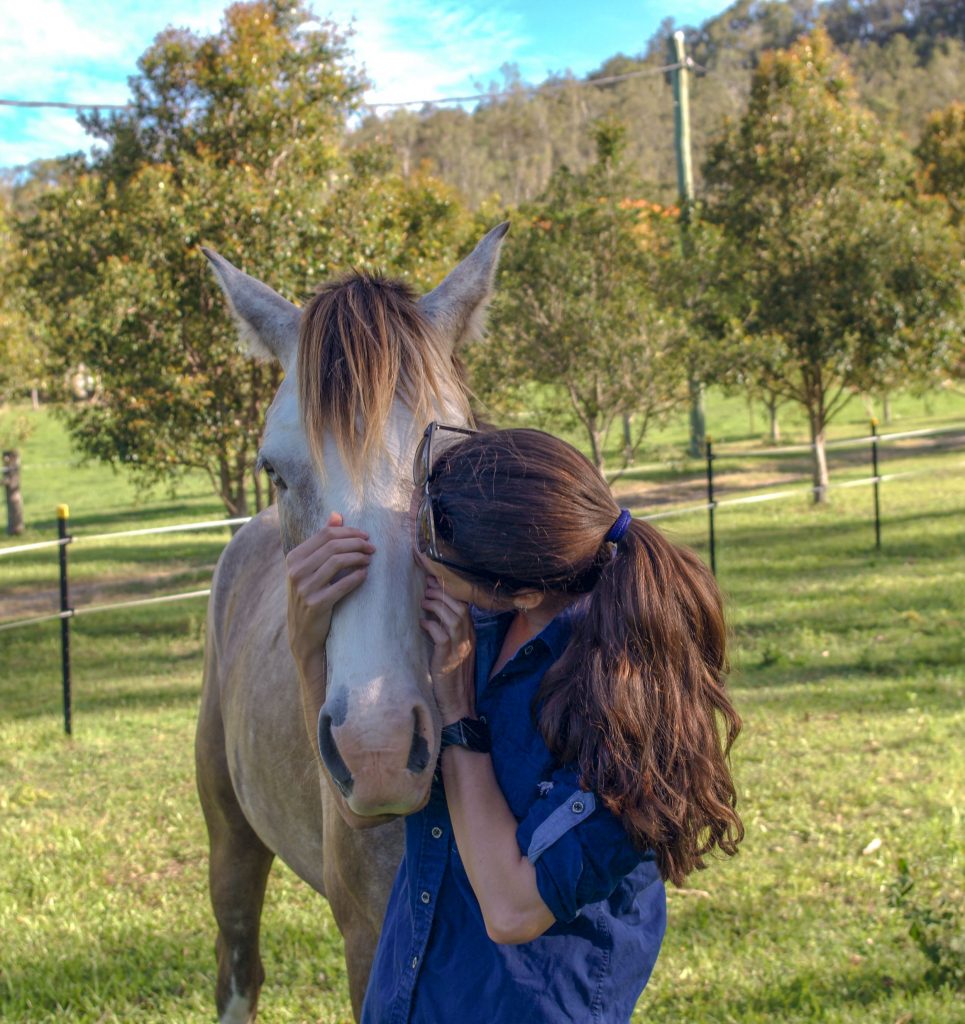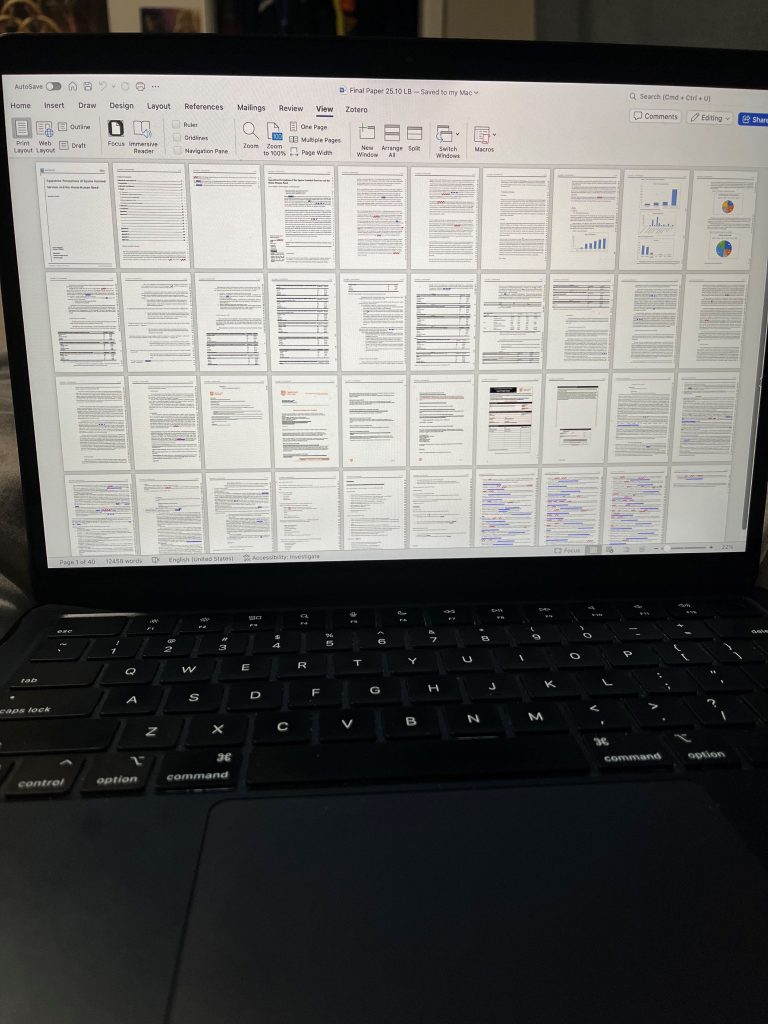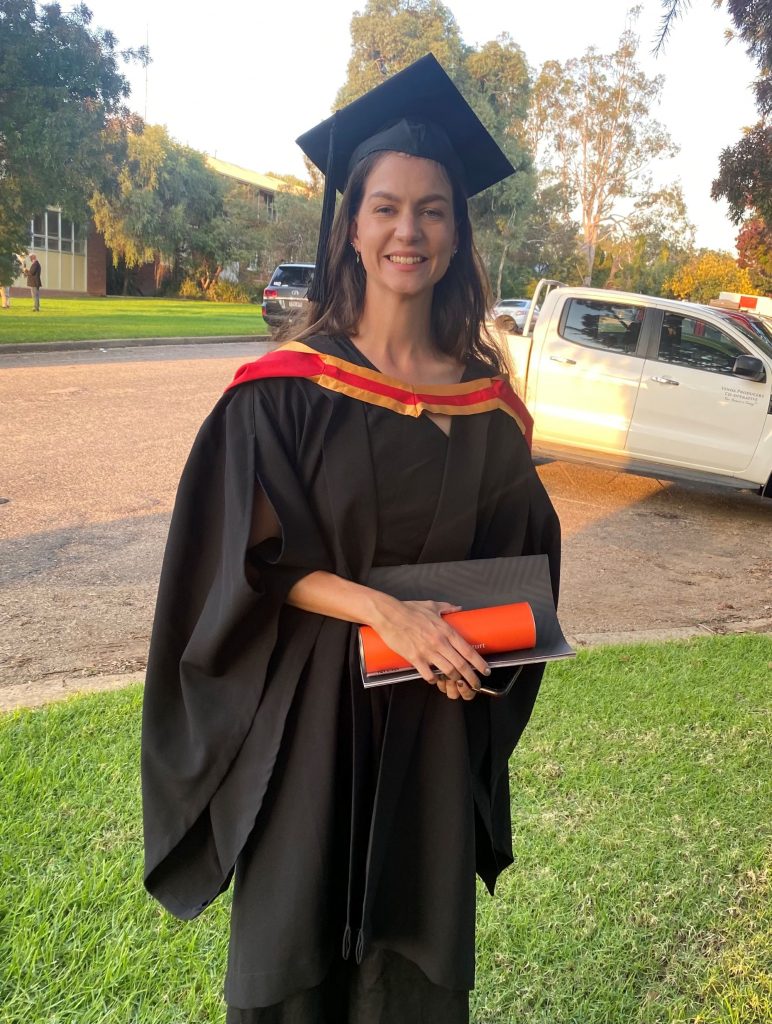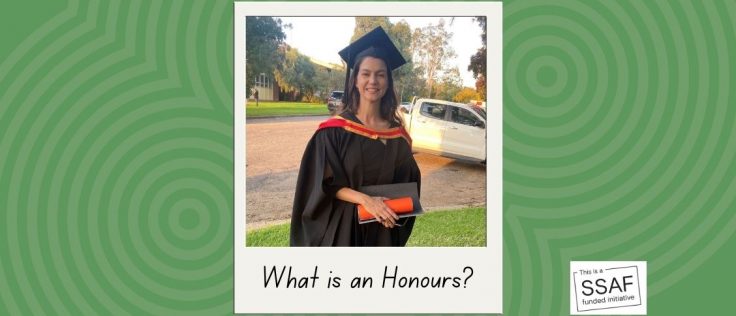Written by Lauren Bridgfoot
When I started in my first year of Equine Science I was asked if I would consider doing my honours at the end of my degree, to which I thought ‘No way, there is wayyyy too much science and maths involved in that’. Cut to November of 2024, where I’ve just finished my final research paper for my honours…
What I want to get at is that it’s more than just a whole bunch of statistics, and science nonsense. You do not have to be a genius to do your honours, just dedicated to learning new things and have a project or topic you’re passionate about! For me that was the horse-human bond So what exactly happens in your honours year?

First you start out enrolled in two subjects, one is your basic introduction to research methods, and the other is research fundamentals. With these two subjects you learn about how research is carried out, how data can be used and analysed, and the processes you have to go through with your research from conception to theoretical publication. You also start to design your project with the help of your advisors. Your project can be either selected from a list from lecturers, or entirely unique to you. Each pathway comes with it’s own challenges, but I personally designed my own!
While it sounds like I just described a lot of science and maths, I promise it’s not. You just learn the theory of how it’s done in your first semester. And if you design your project right, you can ensure that you don’t have to do too much maths at the end (which I did). But I should note that if you don’t have lots of maths to do, it’s likely be a lot of reading instead, so be warned! Your research is about investigating something important to your field, and getting excited about contributing to either current projects or bringing something unique to current research.

You’ll do a variety of assessment tasks throughout the year, with the support of your supervisors (usually lecturers you’ve already met through your course). These assessments range from multiple choice quizzes, small reflections and progress reports, which then build to project proposals, your oral presentations, and the big final paper at the end. This might sound like a lot, but it’s all spaced out throughout the year so it feels manageable.

So if you’ve been thinking maybe honours was a bit scary because you don’t love maths, or you’re not a hardcore scientist, maybe give it another look. It is super rewarding to research something you’re passionate about and see the completed outcome.

Charlie blog is a SSAF funded initiative










